Animated Edition - Summer 2017
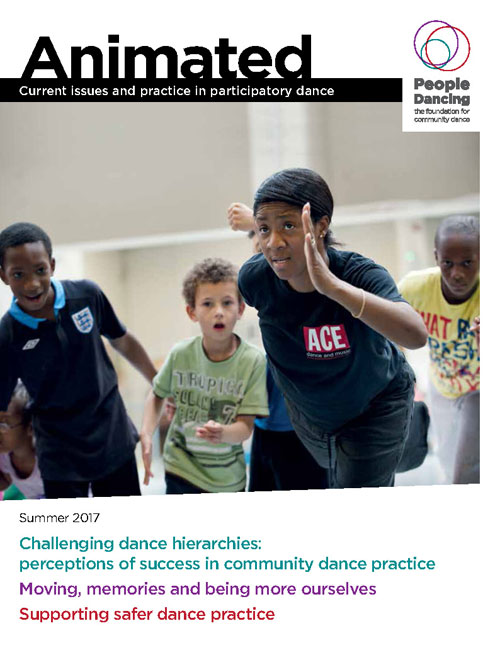
Rest of World Price:
£11.50
|
|
* All prices include delivery
Focus on: Hierarchies, memories and safer dance practice
Welcome
This edition of Animated arrives soon after funding announcements from Arts Council England for 2018 – 2022. I’m very pleased to confirm that People Dancing has been offered continued funding as a National Portfolio Organisation for this period. The opportunity to be able to plan for four years is very welcome indeed.
Whereas the previous Animated focused on the history of the community dance movement, this one focuses on the now and the next. We’re very pleased to have features by writers new to Animated, who between them cover a lot of ground: from early years to older women dancing; stories of dancing in Cairo; dance for health in rural settings; breakdance and visual impairment; Bhangra in schools; and challenging hierarchies in dance.
One article came about quite by chance through an email received by, but not intended for, me that asked a question about whether opportunities for contributing to our published materials are as ‘open’ as they could be. It was important to reflect on this. We are always happy to receive and discuss ideas for articles, see more on how to contribute at communitydance.org.uk/animated. But that’s not the only option…
Have your say – blog for People Dancing
Our new blog aims to embrace and profile diverse voices in community dance. Blogs are written by guest contributors – here are some of them:
- Paula Turner, artistic director of Grand Gestures Dance Collective, arguing that there’s room for us all on the dance floor
- Louise Katerega introduced us to Voice and Presence, a project that looks to amplify and celebrate the voice of women of colour in participatory dance
- Community dance pioneer, the late Anthony Peppiatt, reflecting on the formation of Ludus Dance in the early ‘80s
- Raquel Meseguer, co-founder of Lost Dog, explored whether dance can benefit people with chronic pain
- Alison Williams blogged about the importance dance plays in her life living with Parkinson’s
- Alister O’Loughlin, of Urban Playground, gave an introduction to the world of parkour and performance parkour
- Cecilia Macfarlane, who asked whether there can be dance without touch.
Have you got a blog that’s bursting to get out? Is there an aspect of community and participatory dance you feel particularly passionate about? If so, then get in touch on
info@communitydance.org.uk or
0116 253 3453.
We’re looking for personal viewpoints, rather than corporate statements. If your blog idea is something we can publish, we’ll ask you to write 500-700 words and supply a couple of photographs. We support bloggers through the process so don’t worry if this kind of writing is new to you!
Check the blogs out at:
www.communitydance.org.uk/blog
Chris Stenton
Executive Director, People Dancing
In this issue
Developing practice
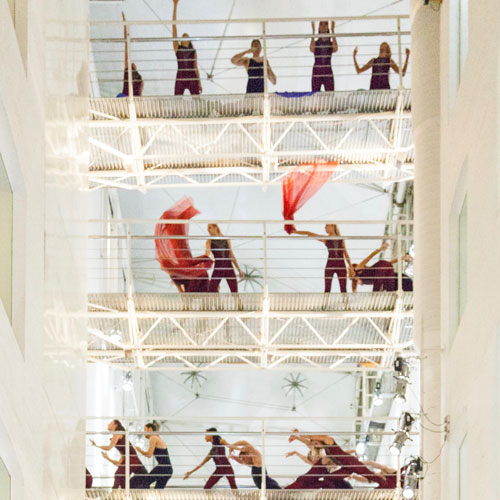
Following the launch of People Dancing and Safe in Dance International (SiDI)’s new online learning course, SiDI’s Co-Founders, Maggie Morris and Sonia Rafferty, explain how safe dance practice is vital for optimising performance, minimising risk and supporting the wellbeing
of every dancer
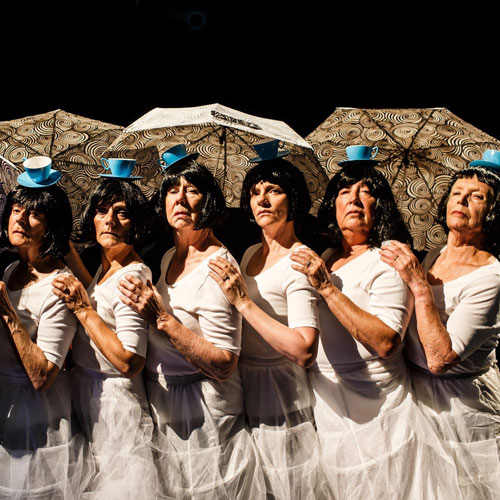
Moving Memory Dance Theatre Company’s recent pop-up performance of Cracking the Crinoline delighted audiences whilst challenging their preconceptions of older women. Creative Director Sian Stevenson and Development Director Cathy Westbrook talk about how this powerful piece and the introduction of digital technology into their performance work have brought about a step-change in the company’s development
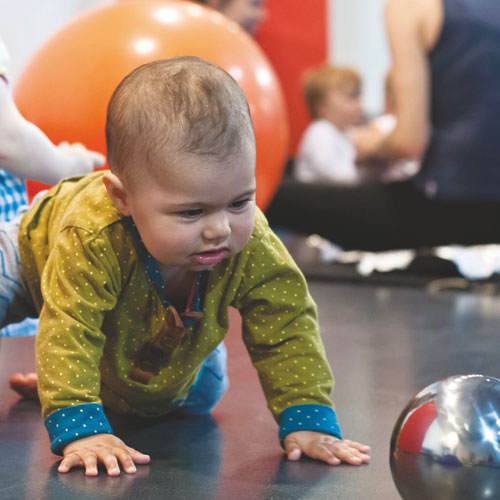
Movement practitioner, educator, trainer and writer Jasmine Pasch describes her approach to working creatively with infants and their families, and the fundamental role of movement in the early years of development
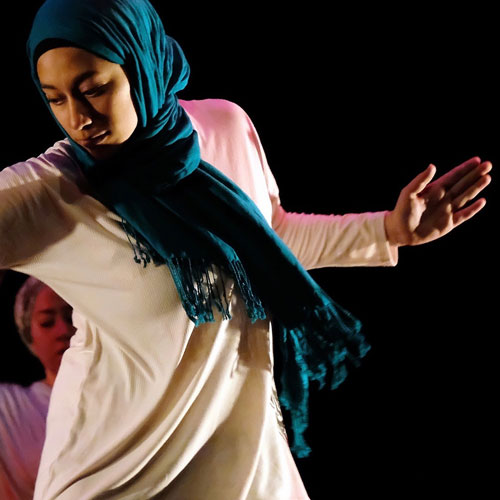
Performer, choreographer and facilitator Zosia Jo Dowmunt takes us to Egypt to share her story of how the research workshops for her solo dance work, (Un)Covered, provided the space to explore expression, empowerment and embodying the Self with women in Cairo
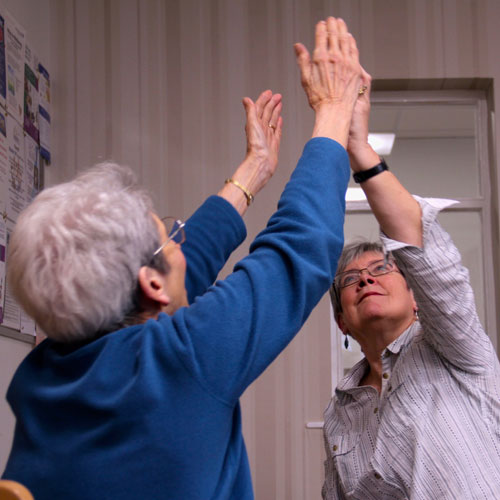
After relocating her life and work to North England five years ago, dance artist, facilitator, educator and manager Susie Tate talks about making connections, fitting in and dancing for health with people in rural settings
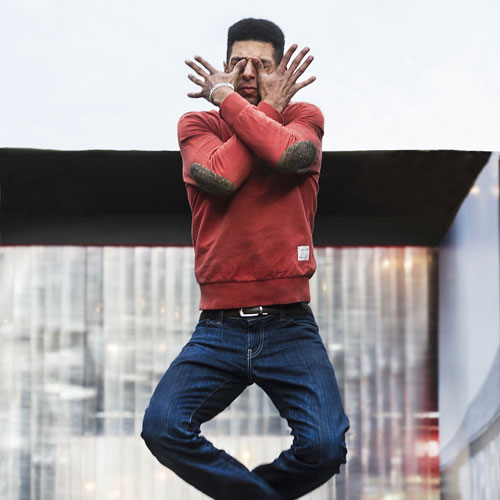
Breakdance and visual impairment seemed like an unlikely link to Artistic Director Nathan Geering until he decided to learn more about the experiences of visually impaired theatre audiences and practitioners. In this article, Nathan shares how this journey of discovery provided new perspectives, unlocked creative possibilities and motivated him to create more accessible experiences for people in the arts
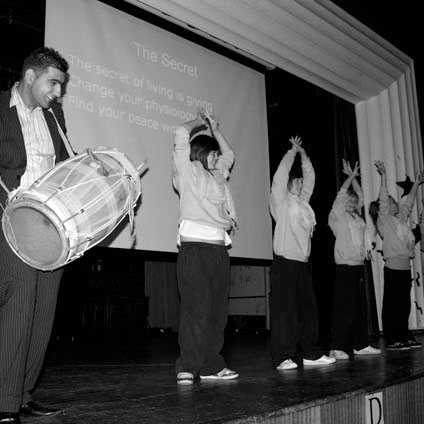
Anoop Watts, Dance Practitioner and Dance Writer, describes using Bhangra as a tool for building cultural awareness and calls for a strategic approach to connect leaders of dances of different cultures with social and cultural agendas within schools
Health and wellbeing
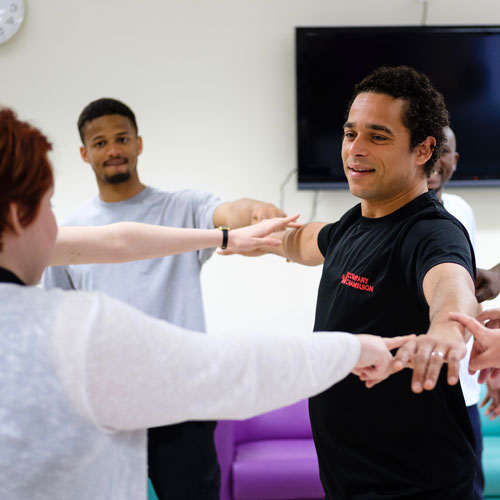
Head of Dance Development and Learning at Déda Clare Limb talks about the partnership between Déda, Manchester-based Company Chameleon and the Radbourne Unit, an NHS hospital in Derby, that led to a morning of movement and reflection for people living with acute mental health conditions
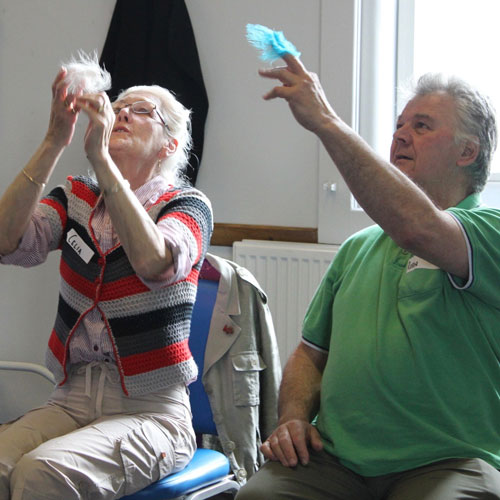
Akademi is the UK’s leading South Asian Dance charity, committed to inspiring audiences and changing lives through the use of classical, contemporary and participatory South Asian Dance. In this article, Akademi’s Dance Well Project Officer Claire Farmer discusses their work bringing dance to older adults to improve their health and wellbeing
Interview
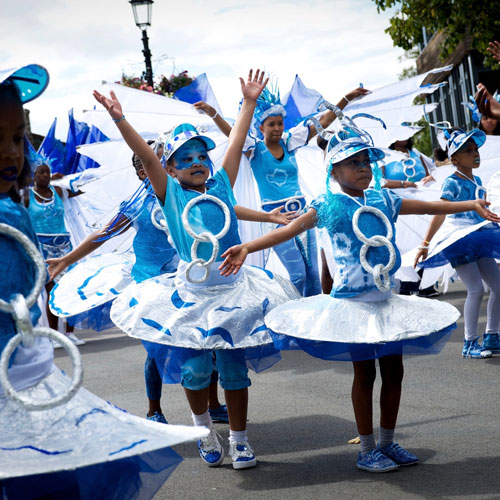
Louise Katerega, Associate Artist of People Dancing meets Gail Parmel, Artistic Director of ACE dance and music, along with Musical Director Ian Parmel and Education Officer Iona Waite, as part of Voice and Presence, Louise’s collaborative project aiming to acknowledge, amplify and celebrate the influence of women of colour in participatory dance
Research and reflections

Drawing on the findings from recent research, the University of Bedfordshire’s
Rachel Farrer, Lecturer in Dance and Imogen Aujla, Senior Lecturer in Dance describe
how the value many dance practitioners place on their work in community dance settings challenges the traditional perceptions of success within the wider sector
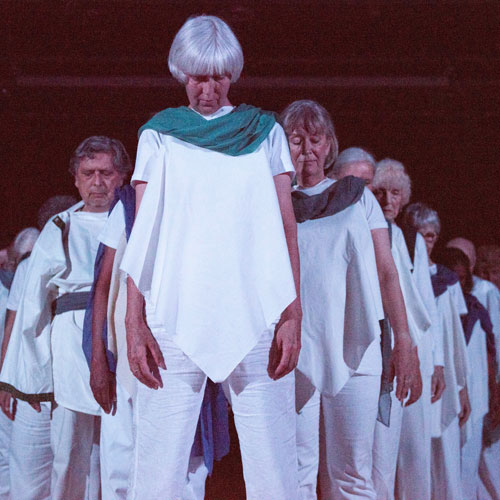
Artistic Director Fergus Early reviews 30 years of Green Candle Dance Company